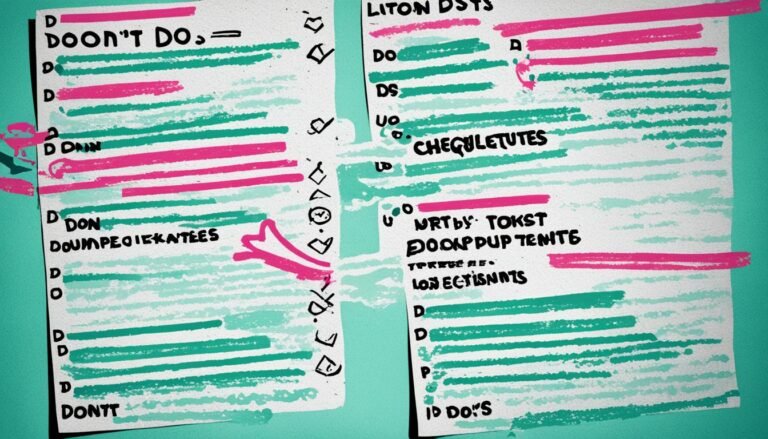What are Cheating Signs?
When you’re in a committed relationship, it’s important to be aware of the signs that may indicate your partner is cheating on you. While these signs may not necessarily point to infidelity, they can give you insight into your partner’s behavior and help you address any concerns. Some common signs of cheating include:
- Secretive behavior
- Increased time spent away from home
- Lack of interest in intimacy
- Sudden changes in appearance or behavior
- Unexplained expenses or financial changes
It’s important to remember that not all signs of cheating are definitive, and it’s essential to communicate with your partner and address any concerns you may have. By recognizing and acknowledging these signs, you can ultimately make informed decisions about your relationship.
Key Takeaways:
- Being aware of the signs of cheating can help you address any concerns in your relationship.
- Some common signs of cheating include secretive behavior, lack of interest in intimacy, and sudden changes in appearance or behavior.
- It’s important to communicate with your partner and not make assumptions based solely on these signs.
How to Spot a Cheater
If you suspect that your partner may be cheating on you, it’s important to look for specific signs of infidelity. By detecting these signs early, you can address the situation and take appropriate action. Here are some common behaviors and actions that may indicate your partner is being unfaithful:
- Changes in behavior: Your partner may start acting differently than usual. This can include becoming distant, secretive, or defensive when asked about their whereabouts or activities.
- Intimacy changes: Your partner may show less interest in being intimate with you, or they may start wanting to try new things in the bedroom that they previously weren’t interested in.
- Lies and excuses: Your partner may start lying about their whereabouts or who they are spending time with. They may also make excuses to avoid spending time with you or participating in activities you enjoy together.
- Changes in appearance: Your partner may start dressing differently, wearing new cologne or perfume, or making other changes to their appearance.
These are just a few common signs of a cheating boyfriend or girlfriend. However, it’s important to remember that not all of these behaviors necessarily mean your partner is being unfaithful. It’s important to approach the situation with an open mind and gather evidence before making any accusations.
Remember, trust your instincts. If something doesn’t feel right, it’s important to address your concerns with your partner and seek professional help if needed.
By recognizing the signs of infidelity and taking appropriate action, you can protect yourself and make informed decisions about your relationship.
Signs of a Cheating Spouse
Infidelity is a common issue that can arise in any relationship. Suspecting that your spouse may be cheating on you can be devastating and may lead to feelings of betrayal and mistrust. However, it’s important to keep an open mind and look for the signs before jumping to conclusions.
Some common signs of cheating in a spouse may include:
- Changes in behavior or routine
- Increased secrecy or distance
- Lack of intimacy or affection
- Unexplained expenses or financial discrepancies
- Emotional detachment or indifference
- Spending more time away from home
- Increased interest in appearance or clothing
While these signs do not necessarily indicate that your spouse is cheating, they can be red flags that warrant further investigation.
“Infidelity is a common issue that can arise in any relationship.”
It’s important to approach the situation with caution and resist the urge to confront your spouse immediately. Instead, try to gather more information and evidence to support your suspicions.
If you do discover that your spouse is cheating, it’s important to take action to protect yourself emotionally and physically. Seeking the help of a therapist or counselor can provide a safe space to process your emotions and explore your options.
Remember, understanding the signs of a cheating spouse can help you make informed decisions about your relationship. By paying attention to these signs and taking appropriate action, you can protect yourself and your emotional well-being.
Addressing Suspicions and Taking Action
When you suspect your partner may be cheating, it’s important to approach the situation with care and consideration. Before making any accusations, make sure you have concrete evidence to back up your suspicions. Otherwise, you may risk damaging the trust and intimacy in your relationship.
Start by having an open and honest conversation with your partner. Avoid being confrontational or accusatory, and instead, express your concerns in a calm and non-judgmental manner. Be prepared to listen to their side of the story and give them the benefit of the doubt.
If you’re still unsure whether your partner is cheating, there are professional resources available to help you. Consider reaching out to a therapist, counselor, or private investigator for guidance and support.

“Communication is key when addressing suspicions of infidelity. This can be a difficult and emotional conversation to have, but it’s important to approach it with empathy and understanding.”
Conclusion
Being able to recognize the signs of infidelity is crucial in maintaining a healthy and fulfilling relationship. By paying attention to the common signs of cheating, including changes in behavior, secretive actions, and lack of interest, you can learn how to spot a cheater and determine if your partner may be unfaithful.
If you suspect that your spouse is cheating on you, it’s important to address your concerns and take action. Whether that means having a difficult conversation or seeking professional help, taking steps to protect yourself and your emotional well-being is essential.
Remember, communication is key in any relationship. By staying open and honest with your partner, you can work through any issues that may arise and build a stronger, more trusting bond.
Thank you for reading this guide on the signs of a cheating spouse and how to approach the situation. We hope that it has provided you with valuable insights and tools to navigate the complexities of a relationship.
FAQ
What are the signs of cheating?
Some common signs of cheating include secretive behavior, sudden changes in appearance or behavior, unexplained absences, decreased intimacy, and increased defensiveness or hostility.
How can I spot a cheater?
Look for signs such as unexplained expenses, frequent lies or excuses, excessive phone or computer use, and a sudden change in their routine or interests.
What are the signs of a cheating spouse?
Signs of a cheating spouse may include sudden changes in their schedule, increased secrecy or evasiveness, unexplained financial transactions, and a loss of interest in the relationship.
How should I address my suspicions and take action?
It’s important to communicate openly and honestly with your partner about your concerns. Seek professional help if needed, and consider gathering evidence before making any decisions.
Why is it important to understand the signs of cheating?
Understanding the signs of cheating can help you make informed decisions about your relationship and protect your emotional well-being. By recognizing these signs, you can address the issue and seek the necessary support or guidance.






